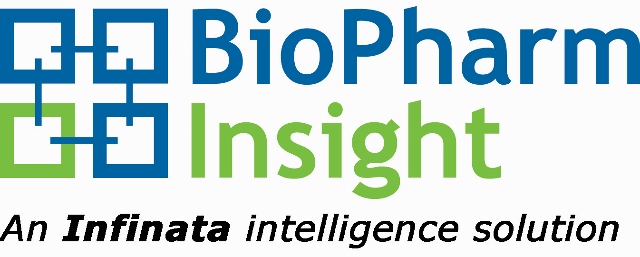BioPharm Insight Profiles MSDx
 Published 2013-06-10
Published 2013-06-10
Proprietary Intelligence
by Kimberly Ha in New York
(Republished with Permission)
MSDx, a private Arizona-based diagnostics company, is seeking to raise its first venture capital round of USD 5m, according to CEO Marie Wesselhoft. The funds will be used to commercialize its lead assay and for additional clinical trials, she said.
The company has completed USD 1.7m in funding to date, primarily from angel investors and family funding. The company’s main focus is developing a set of biomarkers to monitor key pathophysiological processes in multiple sclerosis (MS). The planned financing round will be used to develop a specific marker, MSDx Complex 1, as an assay that monitors active disease in MS, she said.
MSDx-Complex 1 is a high-molecular weight protein complex found in plasma, made up of breakdown products from the destruction of the blood brain barrier during inflammatory processes in MS and is associated with subclinical and clinical inflammatory disease activity, she explained.
The company plans to launch this assay as a laboratory-developed test, and with appropriate funding, obtain Clinical Laboratory Improvement Amendments (CLIA) certification, she said. The assay is not a diagnostic, but it monitors patient response to certain MS therapies, Wesselhoft explained.
MSDx specifically chose the area of patient monitoring, instead of diagnosis, because of the difficulties and complications with the diagnosis market with blood-based tests, she said. “We feel there is an unmet medical need with monitoring the disease over the course of a patient’s life,” Wesselhoft said.
The cost per single test is USD 100-USD 150 per panel. In total, the assay will cost about USD 500, she said. “Our whole goal is to make sure we make our test affordable,” she added. The company is expected to break even in 2016, with a projected net income of USD 2.5m, according to a company presentation.
MSDx has successfully completed two clinical trials analyzing 450 MS patient samples from 11 sites across the country. The company is ultimately working toward a successful regulatory clearance of IVD 510(k) FDA products.
It is hoped the assay will provide information earlier to physicians on whether a patient is responding to therapy, she said. Sometimes, the clinical effect of an MS therapy doesn’t reflect what’s going on in the patient, she noted.
MSDx’s mission is a focus on earlier treatment and decision-making, to help ensure patients are on the right therapy and hopefully to minimize progression of the disease, she said. “When a lesion can be seen on magnetic resonance imaging (MRI), there’s already a lot of damage that is done,” she said. “A blood-based assay that’s affordable can give physicians actionable information on whether there’s breakthrough disease activity,” she added.
Ramesh Nayak, director of research, MSDx, said the challenge right now is showing that a decrease in the marker correlates with some measure of clinical activity. “Our next study will look at gadolinium-enhancing MRI lesions, the only real measure of disease activity in the brain,” said Nayak. There has been no published literature on the markers that the company is developing yet, he noted.
“The data we have now, shows a biological response to the drugs, now we need to show there’s some clinical correlate to this biological response,” Nayak said. MSDx has measured the effect of a number of MS therapies with its monitoring test, looking at the drugs’ effects on these markers before and after therapy, said Wesselhoft.
Dr Timothy Vollmer, director of clinical research, department of neurology, University of Colorado Denver (UC Denver), reported some of the company’s new data at the American Association of Neurology meeting last spring, said Wesselhoft. The study with UC Denver that is upcoming is equivalent to a Phase II study, she said.
“Our next study, which is [partly] why we’re trying to raise financing, is to show a correlation between our markers and clinical response to therapy,” she said. “Multiple studies will need to be done,” she noted. “If we have validated markers, we can get certified as a CLIA lab test,” she said.
The company is working on finishing the protocol and getting it through the institutional review board, said Wesselhoft, noting it’s a 60-subject study, which will take nine months.
One of the partnerships the company currently has is with the Accelerated Cure Project, said Wesselhoft. “Half of our samples have come from this site,” she said, explaining the entity is a nonprofit organization that has agreed to provide tissue samples to the company.
MSDx has studied the assay in about 70 therapies that are either on market or are in the process of getting approved, Wesselhoft said. “About 85% of the MS drugs, we believe, have a mechanism of action that ultimately can be measured with MSDx-Complex 1,” she said.
The focus right now is getting this marker correlated with the MRI scans, she said, adding the goal would be to find an opportunity for pharmaceutical companies to add its biomarkers to some of the studies that are currently ongoing. “With strategic investors, we’re reaching out and meeting with companies that have US Food and Drug administration-approved therapies to encourage adding the MSDx-Complex 1 assay to Phase IV studies,” she said.
#
Interested parties should contact CEO Marie Wesselhoft at MWesselhoft@msdx.co.
Email the BioPharm Insight journalist team at editorialfeedback@biopharminsight.com
